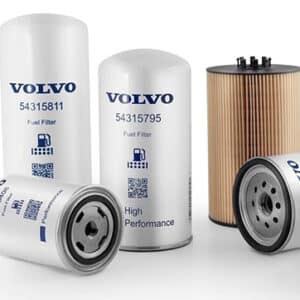
Heavy Equipment Filter Tips
Filters are essential components on your heavy equipment. They protect everything from your fuel system to your hydraulics to your oil by keeping particles out that accelerate wear and tear and lead to expensive failures on the job. The intervals of when to change heavy equipment filters can vary based on your specific machine and filter, so it’s important to always follow the guidelines outlined by your manufacturer.
Why do you need filters?
Heavy equipment filters are designed to keep hydraulic fluids, fuel, and other liquids as clean as possible as they circulate throughout your machine, while also dispersing heat and lubricating components. A filter should capture contaminants and dirt effectively and perform well during the entire interval between changes.
What type of heavy equipment filters are on your machine?
The main filters on your machines are typically fuel filters, engine oil filters, and hydraulic fluid filters. They might work in different systems on your equipment, but they all essentially have the same job: to prevent dirt, particles, and contaminants from damaging components and causing catastrophic failure and expensive downtime.
Fuel filters – It’s very important to take steps that prevent dirt and dust from entering your fuel system, but it’s nearly impossible to keep 100% of the contaminants out. That’s where your filters come in. Modern fuel systems are exceptionally sensitive to fuel quality, cleanliness, and the absence of water. High quality and efficient fuel filters are critical to long fuel system life and maximum machine uptime.
Engine oil filters – Dirt can enter your oil in the process of changing it, and particles released by components as they slowly wear can also contaminate it. Engine oil filters will remove these contaminants before they lead to more serious issues.
Hydraulic fluid filters – Similar to oil filters, it’s the job of hydraulic fluid filters to remove dirt and particles from the system before they lead to accelerated wear and tear and potentially costly damage.
Install the correct heavy equipment filters
One of the most crucial filter tips for your machines is to use the correct option for your specific model and engine system. With filters, you want to follow your owner’s manual closely, as the wrong choice can have very negative consequences down the road. Using the correct filters will actually help maximize machine performance, make your fuel and hydraulic fluid more effective, and extend the life of your machine.
Always use high quality filters
Although it can often be tempting to choose a bargain filter brand, we strongly recommend against doing so. Poor quality heavy equipment filters can make a big difference when it comes to the long term health of your machine. Saving a few dollars in the short run just isn’t worth the damage and downtime that can be caused to your equipment by an inferior choice. One of the most critical filter tips we can provide is to always choose high quality.
If you want more filter tips or have questions about heavy equipment filters in general, contact our team.









